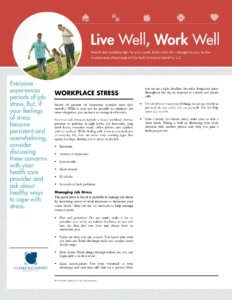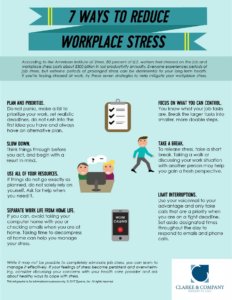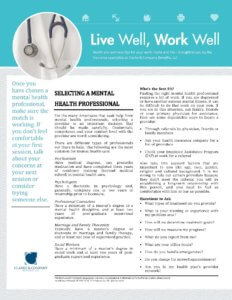Mental Health
Mental health includes our psychological, emotional, and social well-being, which can affect our thought process, mood, and behavior. Mental health issues and illnesses can affect a person at any stage in life, but are not the same condition. There are more than 200 classified mental illnesses, which are more serious conditions that can be acute or chronic including depression, anxiety, bipolar disorder, and schizophrenia. Mental health issues can increase the risk for physical health problems like stroke, type 2 diabetes, and heart disease. Mental health can change over time depending on environment and stress.

Risk Factors
- Stress
- Adverse experiences during childhood
- Experiences surrounding an ongoing medical condition
- Biological factors: genes or chemical imbalances
- Alcohol and drug use
- Lack of socialization
- Loneliness and isolation
Symptoms
At Home
- Get 7-9 hours of sleep each night
- Exercise
- Stay organized
- Communicate with your partner and children
- Prepare for the next day the night before
- Make time for you


In the Workplace
- Plan, prepare, and prioritize
- Focus on what you can control
- Limit interruptions
- Slow down
- Take a break







